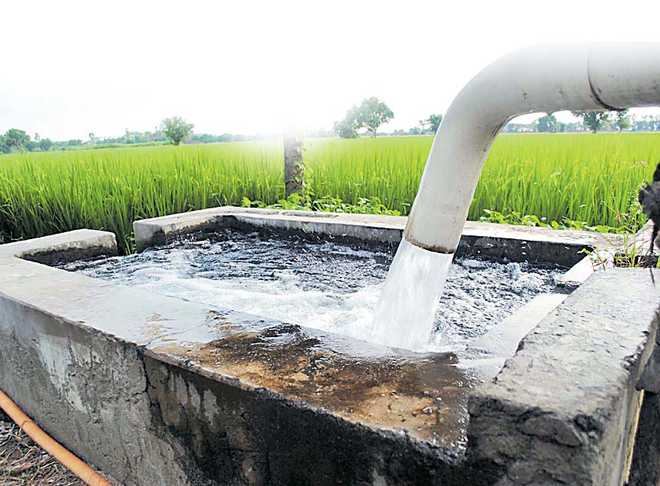Half of Rs 6,000-cr subsidy goes to big farmers
Vishav Bharti
Tribune News Service
Chandigarh, July 9
If the government accepts the recommendation of the Punjab State Farmers Commission on withdrawing free electricity to medium and large farmers, it can save nearly Rs 3,300 crore of Rs 6,000 crore it doles out on power subsidy per year.
The commission, in its draft agricultural policy, has proposed that free electricity to big farmers should be withdrawn. To begin with, a flat rate of Rs 100/hp/per month be charged from farmers owning 4 hectares (9.88 acres) or more land.
According to data of operational landholdings (land which is used wholly or partly for agricultural production and is operated as one technical unit by one person alone or with others without regard to title, legal form, size or location) of Centre’s Agricultural Census 2010-11, there are more than 14 lakh tubewells in the state. Of these, 13 lakh are operated by electricity.
“Nearly 56.22 per cent connections are with those who own 10 acres or more land. And the remaining 43.78 per cent connections are with farmers who own less than 10 acres,” said Prof Ranjit Singh Ghuman, former head, Department of Economics, Punjabi University, Patiala, who has done analysis of the free power scenario. Ghuman has been opposing the idea of free power to rich farmers for the past more than one decade.
In the last financial year (2017-18), the state government doled out around Rs 6,000 crore in power subsidy to the farm sector. And 56.22 per cent of this went to the farmers who owned land more than 10 acres. The subsidy given to medium and large farmers comes to Rs 3,373 crore. The state doesn’t have consolidated data of land ownership.
Experts say if this amount is utilised to strengthen the health and education sectors, the state could see a turnaround so far as services in these two sectors are concerned.
“If the government starts pumping Rs 3,300 crore annually in strengthening health and education infrastructure in rural areas, each of the 12,000 villages in the state can get Rs 1 crore by the end of this government’s tenure in 2022,” says Prof Ghuman.
Significantly, the free power facility to the farm sector was started by the then Congress government in 1997. Initially, farmers owning land up to 7 acres were entitled to it. But a month later, the facility was extended to all tubewell connections. Since then, the successive governments have continued the scheme.
Dependence on tubewells
- The area of the state having depth of water table more than 20 meters was only 0.4 per cent in 1973, which increased to more than 50% in 2010.
- 73 per cent of the total irrigated area in the state is covered by tubewells.
- Total agricultural land in state is 1.02 crore acres (41,37000 hectares)









